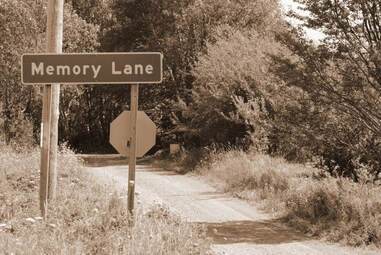Nostalgia
 Did you know that the word nostalgia was once used to describe a form of battlefield trauma; that is, to describe what is now called PTSD.
Did you know that the word nostalgia was once used to describe a form of battlefield trauma; that is, to describe what is now called PTSD.The word nostalgia is from Greek algos (pain, grief, distress) + nostos (homecoming), from neomai (to reach some place, to escape, to return, to get home) and from PIE nes- (to return safely home); -algos is also the source of the medical suffix -algia; e.g., neuralgia, fibromyalgia, and so on.
The Modern Latin word nostalgia (homesickness) first appears in 1688. The English word nostalgia (a morbid longing to return to one’s home or native country; severe homesickness considered as a disease) first appears in 1726. The French word nostalgie appears in French army medical manuals by 1754.
By the 1830s, nostalgia referred to intense homesickness; especially “that of sailors, convicts, African slaves … the bagpipes sometimes produced the same effects in Scottish regiments serving abroad” (Online Etymological Dictionary).
Nostalgia was a considered a serious medical problem by the North in the years of the US Civil War. Medical records from the time report 2599 cases of nostalgia including 13 deaths.
The more benign sense of nostalgia as a wistful yearning for the past is first attested in 1920, perhaps from the use of nostalgie in French literature. Merriam-Webster defines this modern use of nostalgia as the feelings associated with memories from the past and the wish to experience them again; or, a sentimental yearning for some past irrecoverable condition.
A word related to nostalgia is solastalgia, a term coined in 2003. Robert Macfarlane suggests that “where the pain of nostalgia arises from moving away, the pain of solastalgia arises from staying put. Where the pain of nostalgia can be mitigated by return, the pain of solastalgia tends to be irreversible … solastalgia speaks of how a familiar place is rendered unrecognizable by climate change or corporate action” (Macfarlane, 317).
Reference: Online Etymological Dictionary, https://www.etymonline.com/
Robert Macfarlane. (2019). Underland: A deep time journey. London: Penguin.
Published on June 18, 2023 10:48
No comments have been added yet.



